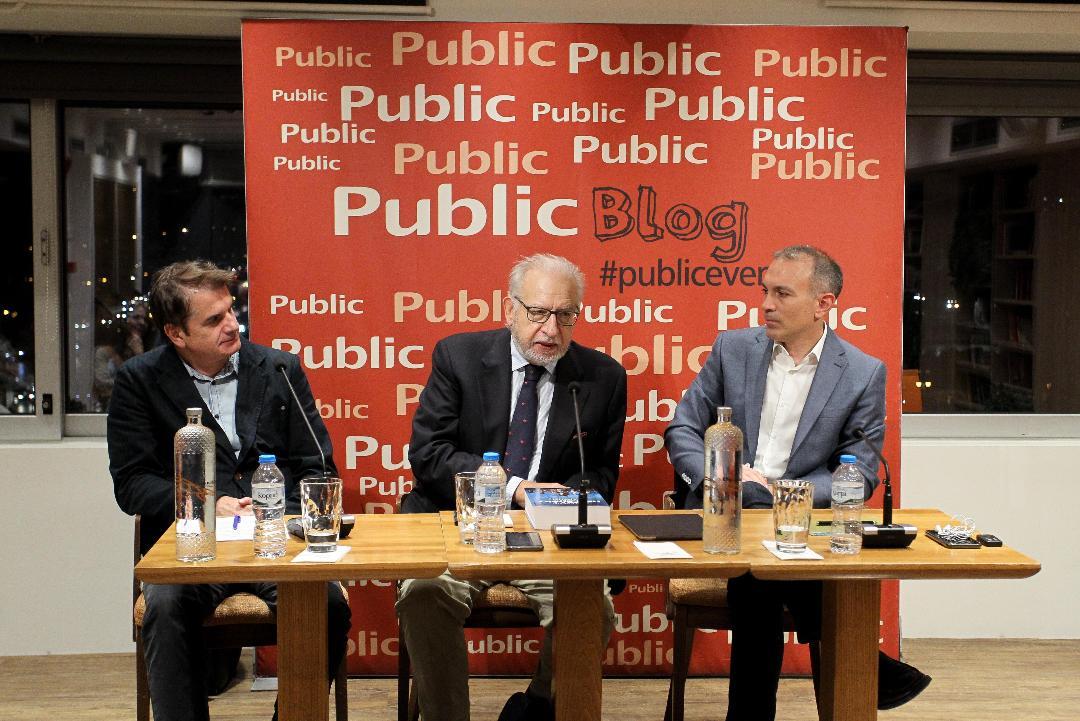Entitled "Oil, the fateful dependency" the book very laboriously transcends the history of oil and focuses on developments over the last forty years. The first oil crisis in 1973 and the second one in 1979/80, which the author witnessed first hand provide a useful background, on which to explain the developments that followed in the Middle East and how the oil multinationals reacted as they were thrown out of territory they once controlled.
As Costis explained this is the first of a two volume work comprising a total of 33 chapters. The first chapters (1-6) are devoted to the history of oil covering a period from classical Greece, with several references to Herodotus as he identifies various oil producing locations on the islands and in the mainland, to Byzantium where oil was used as the main constituent of defense mechanisms and to the pre 2nd World War period and the start of oil producing activity in the Middle East. Chapters 7 to 11 describe the rise of the Seven Sisters and the period of cheap oil,the appearance of the oil independents, the rise of Arab nationalism, the nationalisation of British oil assets in Iran and the subsequent coup against Mossadegh and the the birth of OPEC. The book then goes on to describe the two major oil crises of 1973 and 1979 and analyze the consequences of the new era of expensive oil which followed and which these two crises heralded.(Ch.12-13)
The important role of the major oil producing countries in the wider Middle East is explained in detail focusing on Iran,Saudi Arabia and Iraq.( Ch.14-16) The importance of Saudi Arabia and Iraq vis a vis USA's foreign policy and the role of oil in American foreign policy are accounted for. A special chapter is also devoted to USA as the world's largest oil consumer and the cult of the motor vehicle which contributed to this. The rising role of USA,once again, as a major oil producer is discussed in detail in a separate chapter (Ch.17) in view of the sharp increase of its oil and gas production over the last 8-10 years as a result of the fracking revolution.
In the final chapters (18-20) some basic concepts related to oil price formation are discussed covering oil demand and supply, the role of commodity exchanges,oil supply disruptions and the role of climate and physical calamities. Also the relationship between the oil majors and the environment is examined and their transformation plans on account of climate change challenges.
The final chapter of the book is devoted on the contentious issue of whether Greece has oil and gas resources, and if yes where are these deposits located and how big are they. Hence detailed information is provided on proven, contingent and probable finds and how over the years successive Greek governments paid only lip service to the country's need to exploit its not insignificant hydrocarbon resources. A special section is devoted to the rebirth of the Prinos oil producing area in the the North Aegean and how this has affected a change of thinking in terms of exploring the country's hydrocarbon potential. The efforts which have been undertaken over the last 5 years by Greece to open up its hydrocarbon sector and attract international oil players are recounted together with the role of oil and gas exploration in defining the country's sea boundaries, as part of its Economic Exclusion Zone (EEZ), is also described in some detail.

In a well prepared and spirited speech Dr.Costas Filis, Executive Director of the Institute of International Studies of Pantion University introduced Costis' book while Adam Adamopoulos, senior editor of Greece's leading energy portal Energia.Gr, moderated the discussion which followed.